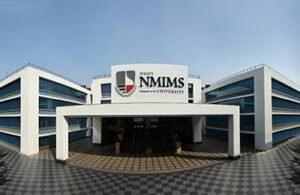MBA and PGDM – A Brief Overview
The choice between an MBA (Master of Business Administration) and a PGDM (Post Graduate Diploma in Management) largely depends on an individual’s career goals and preference for curriculum flexibility.
An MBA is a degree program offered through universities or affiliated colleges, whether public or private. MBA programs generally have a more standardized curriculum, which is only revised every few years. This consistency offers a solid academic framework but may sometimes lag behind fast-evolving industry needs. However, certain progressive universities do work to refresh their MBA syllabus regularly, though less frequently than PGDM courses.
In contrast, a PGDM is a diploma course offered by recognized or autonomous business schools. One of its key advantages is the ability for these institutions to update the curriculum independently, ensuring that course content reflects the latest industry trends and skills in demand. This adaptability helps PGDM programs align more closely with current business requirements.
Both paths have distinct advantages: An MBA provides the stability and recognition of a university-backed degree, while PGDM programs offer flexibility and immediate industry relevance.
MBA Vs PGDM: Key Highlights
| Particulars | MBA | PGDM |
| Approved By | UGC | AICTE |
| Offered by | Affiliated Institutions | Autonomous Institutes |
| Curriculum | Academically Focused | Industry Focused |
| Teaching Methodology | Theoretical | Practical |
| Syllabus | Rigid | Dynamic |
| Peer Group | More preferred by Working Professionals | More Preferred by Fresh Graduates |
| Degree | Post Graduate in Management | Post Graduate Diploma |
| Eligibility Criteria | Bachelor’s Degree in any stream | Bachelor’s Degree in any stream |
| Average Fees | Rs 16.5 Lakhs | Rs 15.38 Lakhs |
| Salary | Rs 21.3 LPA | Rs 12.96 LPA |
| Eligibility for PhD | YES | NO |
| Entrance Exam | CAT, XAT, GMAT, MAT, SNAP, CMAT, ATMA | CAT, XAT, GMAT, MAT, CMAT, ATMA, GRE, SNAP |
| Equivalence | Post Graduate Degree | Equivalent to MBA in India |
| Examination Conducted by | University | AICTE |
| Scope | Marketing, Finance, Consulting, Operations, Human Resources, Healthcare, IT & Technology, Retail, Manufacturing, Education | Entertainment Portal, Banks, Consultancies, Educational Institutions, Law Firms, Hotels and Resorts, Market Research Companies, Marketing Agencies |
| Top Recruiters | McKinsey & Company, Boston Consulting Group (BCG), Bain & Company, Deloitte, PwC, EY (Ernst & Young), Accenture, Goldman Sachs, JP Morgan Chase, Amazon | Accenture, PwC Advisory Services LLC, Deloitte Consulting, Booz Allen Hamilton, EY LLP Consulting Practice, and McKinsey & Company. |
MBA Vs PGDM – Who Should Pursue
Who Should Pursue an MBA?
An MBA suits those with a focused career vision and a drive to achieve long-term success in business leadership. Ideal MBA candidates have a mix of professional experience, academic achievement, and leadership potential, along with qualities like creativity, dedication, and a commitment to their goals.
Candidates often have:
- 2-3 years of work experience.
- A strong GMAT or GRE score.
- A solid undergraduate GPA.
- Involvement in extracurriculars, which can enhance their profile.
Who Should Pursue PGDM?
A PGDM is ideal for individuals with a background in business or some professional experience, who are eager to sharpen their analytical and problem-solving skills across various areas of business. This program is especially suited for those aiming to deepen their expertise, advance in their careers, or stay current with new industry trends and technologies.
Pursuing a PGDM may be beneficial for:
- Gaining specialized skills and knowledge that give a competitive edge in your field.
- Advancing to more senior roles with enhanced qualifications.
- Staying updated on industry developments, which could positively impact your career.
For instance, if you specialize in finance and want to expand your understanding of areas like corporate finance or public finance, a PGDM can offer you a tailored pathway to deepen your expertise.
An MBA can be a strategic choice for those who are ready to commit to a defined career path and seek to develop broad leadership skills to drive future success.
MBA and PGDM Specialisations
Some of the common and popular MBA and PGDM specializations include:
- Finance – Corporate finance, investment banking; ideal for banking and consulting roles.
- Marketing – Brand management, digital marketing; suited for advertising and market research.
- Human Resources (HR) – Recruitment, training; for roles in HR management and talent acquisition.
- Operations – Supply chain and logistics; fits careers in manufacturing and logistics.
- Information Technology (IT) – IT strategy and project management; for tech leadership roles.
- International Business – Global strategies and trade; prepares for multinational roles.
- Business Analytics – Data-driven decision-making; for data analysis and intelligence roles.
- Healthcare Management – Hospital and healthcare operations; ideal for healthcare admin.
- Entrepreneurship – Startup and innovation management; for aspiring entrepreneurs.
- Supply Chain Management – Procurement and logistics; fits roles in supply chain coordination.
Some specializations cater to specific industry needs and emerging trends for MBA and PGDM courses. They are:
MBA Specializations
- Corporate Social Responsibility (CSR)
- Public Policy Management
- Agribusiness Management
- Sports Management
- Energy Management
- Rural Management
PGDM Specializations
- Digital Marketing
- Retail Management
- Business Design and Innovation
- Media and Entertainment Management
- International Trade
- Artificial Intelligence and Machine Learning
MBA vs PGDM: Syllabus Comparison
The syllabus structure of MBA and PGDM programs often differs due to their nature and affiliation.
MBA Syllabus:
- Typically follows a more standardized curriculum as it is offered by universities.
- The syllabus is revised every few years, ensuring a solid academic foundation but sometimes lacking in the latest industry updates.
- Core subjects often include Financial Management, Marketing Management, Operations, Human Resources, and Strategic Management.
- Some universities offer elective courses, but flexibility is usually limited compared to PGDM programs.
PGDM Syllabus:
- Designed and updated by autonomous institutes, allowing them to stay closely aligned with industry trends.
- Curriculum can be updated frequently, sometimes yearly, to reflect new skills and technologies in demand.
- Emphasizes practical, skill-based learning and often includes industry projects, case studies, and workshops.
- Includes core business subjects but offers greater flexibility with electives, allowing students to specialize in emerging fields like Digital Marketing, Business Analytics, and FinTech.
In essence, while MBA programs provide a broad academic base, PGDM courses offer a more dynamic, industry-oriented approach.
MBA and PGDM: Top Colleges
Top MBA Colleges in India 2025: Fees and Average Placement
| College | Fees | Average Placement Package |
| IIM Ahmedabad | Rs 24.61 Lakhs | Rs 36.10 LPA |
| IIM Bangalore | Rs 24.50 Lakhs | Rs 33.82 LPA |
| IIM Calcutta | Rs 27 Lakhs | Rs 35.07 LPA |
| XLRI Jamshedpur | Rs 25.80 Lakhs | Rs 32.70 LPA |
| FMS Delhi | Rs 2 Lakhs | Rs 34.10 LPA |
| IIM Indore | Rs 21.17 Lakhs | Rs 25.68 LPA |
| IIFT Delhi | Rs 21.77 Lakhs | Rs 29.10 LPA |
| MDI Gurgaon | Rs 18.67 Lakhs | Rs 27.67 LPA |
| IIM Kozhikode | Rs 22.50 Lakhs | Rs 35 LPA |
| SPJIMR Mumbai | Rs 21.75 Lakhs | Rs 33 LPA |
Top PGDM Colleges in India 2025: Fees and Average Placement
| College Name | PGDM Fees | Average Placement Package |
| Indian Institute of Management (IIM), Ahmedabad | Rs 24-28 Lakhs | Rs 30-33 Lakhs |
| Indian Institute of Management (IIM), Bangalore | Rs 24-25 Lakhs | Rs 28-31 Lakhs |
| Indian Institute of Management (IIM), Calcutta | Rs 24-26 Lakhs | Rs 29-30 Lakhs |
| XLRI – Xavier School of Management, Jamshedpur | Rs 23-26 Lakhs | Rs 26-29 Lakhs |
| SP Jain Institute of Management and Research (SPJIMR), Mumbai | Rs 20-22 Lakhs | Rs 25-27 Lakhs |
| Management Development Institute (MDI), Gurgaon | Rs 23-24 Lakhs | Rs 22-24 Lakhs |
| Faculty of Management Studies (FMS), Delhi | Rs 2-2.5 Lakhs | Rs 26-27 Lakhs |
| Narsee Monjee Institute of Management Studies (NMIMS), Mumbai | Rs 21-23 Lakhs | Rs 18-20 Lakhs |
| Institute of Management Technology (IMT), Ghaziabad | Rs 19-21 Lakhs | Rs 14-16 Lakhs |
| International Management Institute (IMI), Delhi | Rs 19-21 Lakhs | Rs 13-15 Lakhs |
Career Opportunities: MBA Vs PGDM
Both MBA and PGDM graduates have access to a wide range of career opportunities, but the paths can differ based on the program’s focus and the individual’s skills. Candidates can have a look at the career prospects and opportunities for MBA and PGDM professionals below:
MBA Career Opportunities
- General Management: MBA graduates often pursue roles in leadership and management across various industries, with a solid grounding in both theory and practice.
- Consulting: Many MBA graduates enter management consulting firms like McKinsey, BCG, or Bain.
- Finance: Career paths in investment banking, corporate finance, wealth management, and financial analysis are common.
- Marketing: MBA holders often work in brand management, digital marketing, market research, and sales.
- Operations: Roles in supply chain management, logistics, and operations management are also popular.
- Human Resources: Leadership roles in recruitment, training, and employee relations.
PGDM Career Opportunities
- Industry-Specific Roles: PGDM graduates are often well-suited for roles requiring up-to-date industry knowledge, particularly in tech-driven fields like digital marketing, data analytics, and e-commerce.
- Entrepreneurship: With a focus on innovation, PGDM graduates are well-prepared for starting their own businesses or working in startups.
- Marketing & Sales: PGDM graduates excel in roles that require practical knowledge of current marketing trends, especially in digital marketing and brand management.
- Consulting: They also find roles in consulting firms, particularly those focused on technology or niche markets.
- Data Analytics & IT: With their focus on current industry trends, PGDM graduates often pursue careers in data analytics, business intelligence, or IT project management.
MBA vs PGDM: What is the Salary Difference?
The salary potential for MBA and PGDM graduates varies based on factors like experience, specialization, and the reputation of their institution. Generally, both MBA and PGDM candidates can expect competitive starting salaries, especially in fields like consulting, finance, and marketing. For certain niche areas like digital marketing or business analytics, PGDM graduates may sometimes see a higher entry-level salary due to their industry-focused training. At mid-career, MBA graduates might have an edge in roles where a degree is required, such as strategic finance or operations, while PGDM graduates often excel in tech-driven roles that value current industry knowledge. In senior roles, salary differences even out, with experience and specialization taking precedence. Both MBA and PGDM graduates reaching director or VP levels can typically expect six-figure salaries, especially in high-demand specializations. The salary difference between PGDM vs MBA professionals is as follows:
MBA Average Salary
| Job Roles | Career Opportunities |
| Investment Banker | Rs 9 LPA |
| HR Manager | Rs 7.5 LPA |
| Marketing Manager | Rs 6.5 LPA |
| Finance Advisor | Rs 6.5 LPA |
| Business Analyst | Rs 6.5 LPA |
PGDM Average Salary
| Job Roles | Career Opportunities |
| Project Manager | Rs 13.5 LPA |
| Consultant | Rs 10.5 LPA |
| Data Scientist | Rs 8 LPA |
| Tax Specialist | Rs 6 LPA |
| Auditor | Rs 5 LPA |
MBA vs PGDM: Admission Process Comparison
Both MBA and PGDM have a similar admission process involving eligibility criteria, entrance exams, and GD/PI rounds, but the specific requirements may vary depending on the institution.
MBA Admission Process 2025
- Eligibility: A bachelor’s degree from a recognized university with a minimum percentage of 50% or more. Some universities may require work experience.
- Entrance Exams: Most MBA programs require entrance exams like CAT, MAT, XAT, GMAT, or GRE. The exam score is a crucial part of the selection process.
- Application: Candidates need to apply to the universities or colleges offering the MBA program. The application includes personal details, academic history, and exam scores.
- Group Discussion (GD) and Personal Interview (PI): Shortlisted candidates based on exam scores are invited for GD and PI. This assesses communication skills, personality, and leadership potential.
- Final Selection: Final selection is based on exam scores, GD/PI performance, academic record, and sometimes work experience.
PGDM Admission Process 2025
- Eligibility: A bachelor’s degree with a minimum percentage of 50% or more. Work experience is often preferred but not mandatory.
- Entrance Exams: Some PGDM programs require entrance exams like CAT, MAT, XAT, or GMAT. Others may have their own entrance tests or may accept national-level exam scores.
- Application: Apply to the business schools offering PGDM programs. Applications typically include personal details, academic background, and entrance exam scores.
- Group Discussion (GD) and Personal Interview (PI): Shortlisted candidates are called for GD and PI. This evaluates communication, problem-solving skills, and personality.
- Final Selection: Final selection is based on entrance exam scores, GD/PI performance, academic background, and possibly work experience.
PGDM or MBA Which is Better?
Choosing between an MBA and a PGDM can be a big decision, but it all depends on what you’re looking for in your career.
Go for an MBA
if you want a solid academic foundation, prefer university recognition, and are aiming for traditional corporate roles.
Opt for a PGDM
if you want flexibility, industry-specific skills, and are eyeing emerging fields or tech-driven careers.
In the end, both programs open doors to fantastic career opportunities. It’s all about aligning your choice with your career goals and personal preferences!
FAQs
-
What are the career prospects of MBA and PGDM graduates?
PGDM and MBA graduates have similar career opportunities but often take different paths within industries. PGDM graduates are more likely to work in specialized roles, such as strategy or operations consulting, investment banking, digital marketing, or supply chain management. On the other hand, MBA graduates often pursue more traditional roles in areas like strategy consulting, corporate finance, marketing research, project management, and HR management.
-
Is PGDM better than MBA?
It depends on your career aspirations. PGDM offers industry-specific training and is often updated to match current trends, while MBA focuses on broad management concepts. PGDM is more suitable for those looking for practical skills, while MBA is ideal for those seeking a solid academic foundation.
-
Which is better MBA or PGDM for government jobs?
For government jobs in India, an MBA is often preferred because it’s a degree program recognized by most government organizations, whereas PGDM is a diploma and may not be given equal weight.
-
Is PGDM equal to MBA for government jobs?
PGDM is not usually considered equal to an MBA for government jobs in India but MBA equivalent. PGDM is a diploma, while MBA is a degree. Government sectors typically require an MBA for higher recognition.
-
What is the salary difference between MBA and PGDM?
The salary difference is usually minimal at the start. However, PGDM graduates may earn slightly higher salaries in specialized fields like digital marketing or business analytics. For senior positions, experience and skills matter more than the degree.
-
Can PGDM be called an MBA?
PGDM can be called equivalent to MBA in India. PGDM is a diploma offered by autonomous institutes, while MBA is a degree awarded by universities.
-
Can I do both PGDM and MBA?
Yes, you can pursue both from institutions where they offer dual degrees; but it’s not common or necessary. Doing both could enhance your knowledge and skills, but it’s better to choose one based on your career goals and whether the additional qualification offers value.





